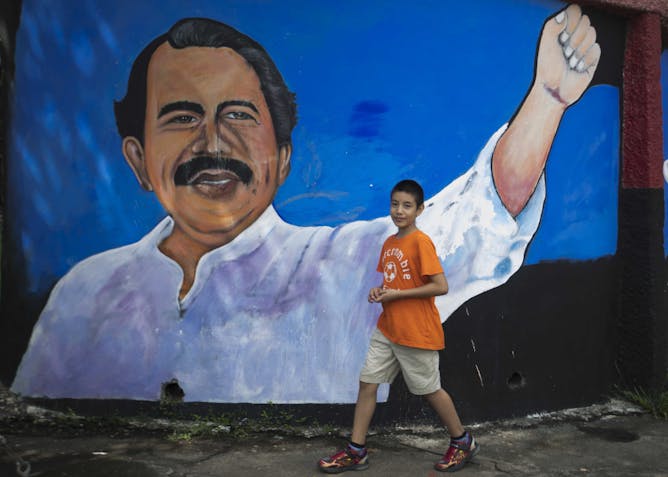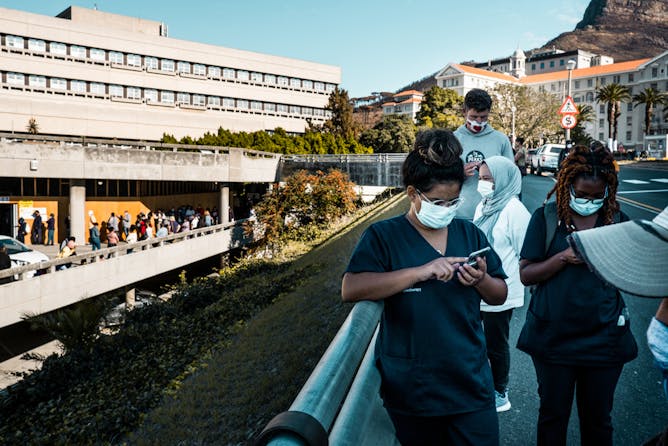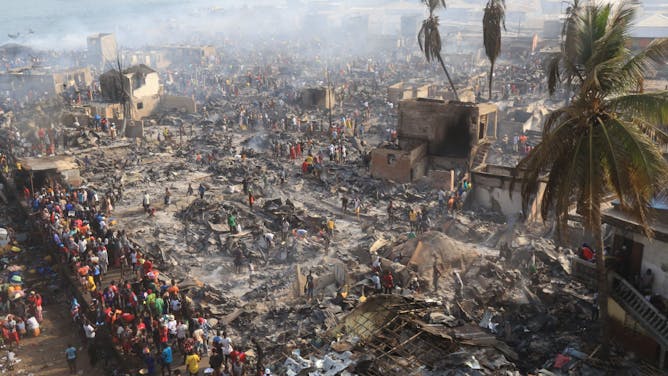|
Nicaraguans went to the polls on Sunday with former revolutionary leader, Daniel Ortega, hoping to win a fourth consecutive term. He didn't leave much to chance. Prominent opposition figures (including presidential candidates) and critics were imprisoned or forced into exile and newspaper offices raided. It seems likely that his Sandinista National Liberation Front (FSLN) will receive a significant portion of the popular vote and Ortega – and his wife and vice-president Rosario Murillo – will continue to rule Nicaragua for the foreseeable future. Eline van Ommen traces the story of the young 1970s left-wing revolutionary, and how the duo have managed to
cling on to power.
South Africa is one of the leading African countries in terms of COVID-19 vaccine rollouts. The country has recently extended vaccination to adolescents aged 12-17 – a move that leading South African scientists Shabir A. Madhi argues is premature.
|

Once a revolutionary: Nicaraguan president Daniel Ortega appears to want to stop at nothing to retain power.
EPA-EFE/Jorge Torres
Eline van Ommen, University of Leeds
Once a Sandinista revolutionary, Ortega’s oppressive neoliberal regime now imprisons opponents and raids newspaper offices.
|

People queuing to get vaccinated. Instead of vaccinating 12-17 year olds, government should focus on giving boosters to people who need it.
Shutterstock
Shabir A. Madhi, University of the Witwatersrand
The focus of the government seems to be about how many people can get vaccinated rather than ensuring the greatest protection against severe disease and deaths.
|
|
|
-
Kamiar Mohaddes, University of Cambridge; Matt Burke, Sheffield Hallam University; Matthew Agarwala, University of Cambridge; Patrycja Klusak, University of East Anglia
Early investments generate rapid cost reductions, while further delay simply slows innovation and compounds the climate crisis.
-
Paul David Richard Griffiths, EM Normandie – UGEI
Banks are making inroads with investments, but that’s only one third of their activity.
-
Simon Bullock, University of Manchester; Alice Larkin, University of Manchester; James Mason, University of Manchester
The global shipping sector delivers 90% of global trade and has a carbon footprint the size of Germany’s.
-
Ana Maria Dimand, Boise State University
The government uses a process called public procurement. A professor of public policy explains how the process works and how it is increasingly used to achieve social goals.
-
Sara Sawyer, University of Colorado Boulder; Arturo Barbachano-Guerrero, University of Colorado Boulder; Cody Warren, University of Colorado Boulder
Some viruses go extinct, while others stick around. The virus that causes COVID-19 seems likely to remain with us for the long term.
|
|

The fire at Susan Bay magnified the lack of disaster management in Sierra Leone.
Lee Miles
Lee Miles, Bournemouth University
While promoting better risk reduction is always sensible, it leads to a tendency for disaster management systems to lean heavily on experience and systems designs of other countries
|